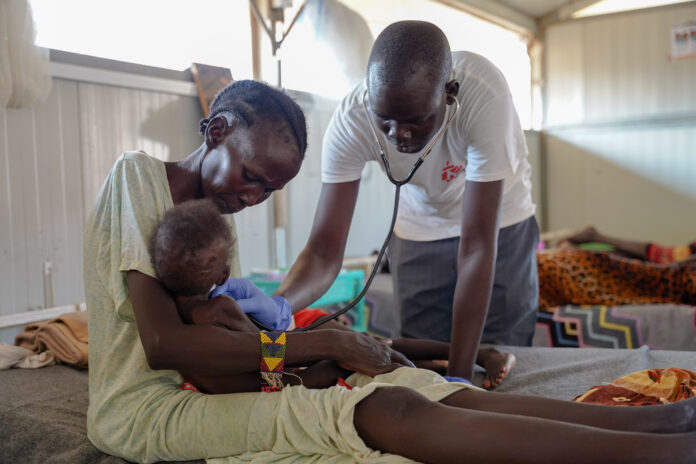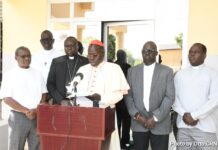
Médecins Sans Frontières (MSF), also known as Doctors Without Borders, has strongly condemned the armed looting and forced closure of its hospital in Ulang, Upper Nile State, following an attack by dozens of armed men early Monday morning.
The incident, which occurred on 14 April, has resulted in the complete suspension of medical services at the only functional health facility in the region, leaving thousands without access to critical care amid rising violence and a cholera outbreak.
“We are outraged by the attack on our hospital and the threats against our medical staff in Ulang,” said Zakariya Mwatia, MSF Head of Mission in South Sudan. “This facility has been a lifeline for the community at a time of escalating violence and an active cholera outbreak.”
According to MSF, the attackers stormed the hospital and its adjacent office, threatening staff and looting essential medical supplies and equipment. Prior to the assault, over 100 patients were receiving care at the facility, including trauma victims, pregnant women, and children. Many of them fled in fear on the night of 13 April as violence approached the town. The remaining patients were ultimately forced to abandon the hospital once looting began room by room.
Though no staff members were physically harmed, MSF says it is deeply alarmed about the safety of its teams and patients.
“The safety of our staff and patients is our foremost priority. We are taking all necessary measures to evacuate our teams as we fear further escalation of violence,” Mwatia said. “This unacceptable act of violence shows a complete disregard for humanitarian principles and international humanitarian law.”
This latest attack is part of a worrying trend in the region. In January 2025, armed men attacked two clearly marked MSF boats carrying medical staff and supplies on their return from Nasir County Hospital. That incident forced the organization to suspend all outreach operations in the area.
MSF has been operating in Ulang since 2018, managing a 60-bed hospital alongside a network of decentralized primary healthcare services. In 2024 alone, MSF teams provided over 10,000 outpatient consultations, admitted 3,284 patients, and assisted with 650 maternal deliveries.
With the hospital now closed, an already fragile healthcare system in Upper Nile is further crippled. The closure also disrupts MSF’s support to nearby primary healthcare centres (PHCCs), hampering efforts to respond to a cholera outbreak and provide treatment for chronic illnesses such as HIV and tuberculosis. More than 800 patients dependent on these treatments have lost access, placing their lives at risk.
Despite this, MSF continues to operate in other areas of Upper Nile State, including Renk and Malakal counties, and is calling on all parties to the conflict to immediately respect and protect medical facilities, staff, and civilians in accordance with international humanitarian law.
“MSF remains committed to providing impartial, lifesaving care wherever it is needed,” said Mwatia. “But the safety of patients and health workers must be guaranteed.”
The forced closure of the Ulang hospital underscores the urgent need for stronger protection of health services and humanitarian workers across conflict-affected regions of South Sudan.




